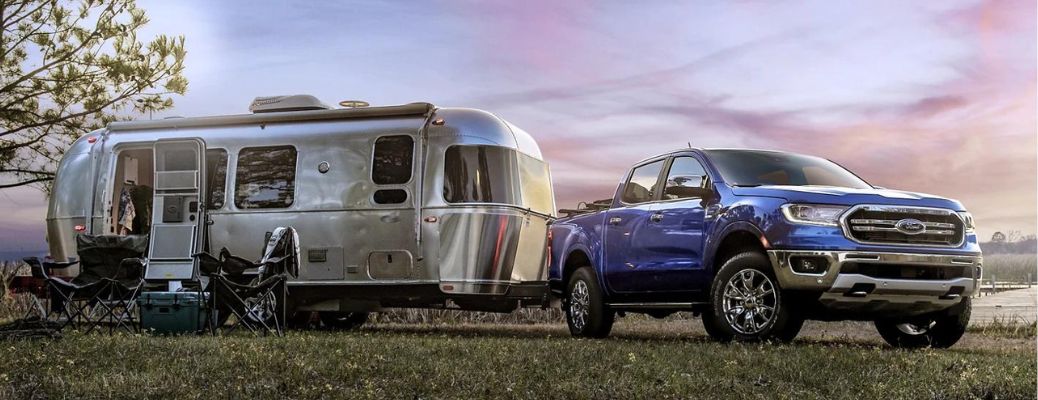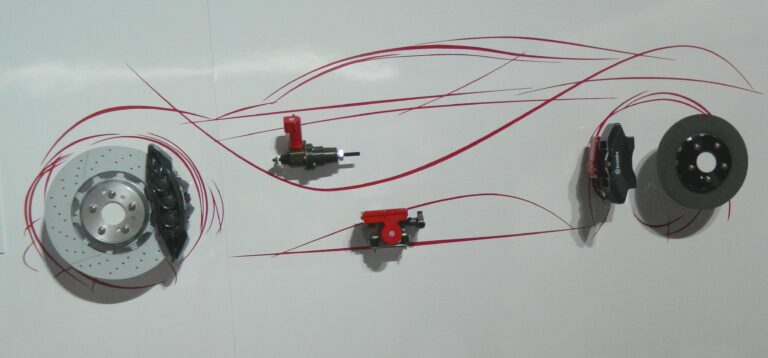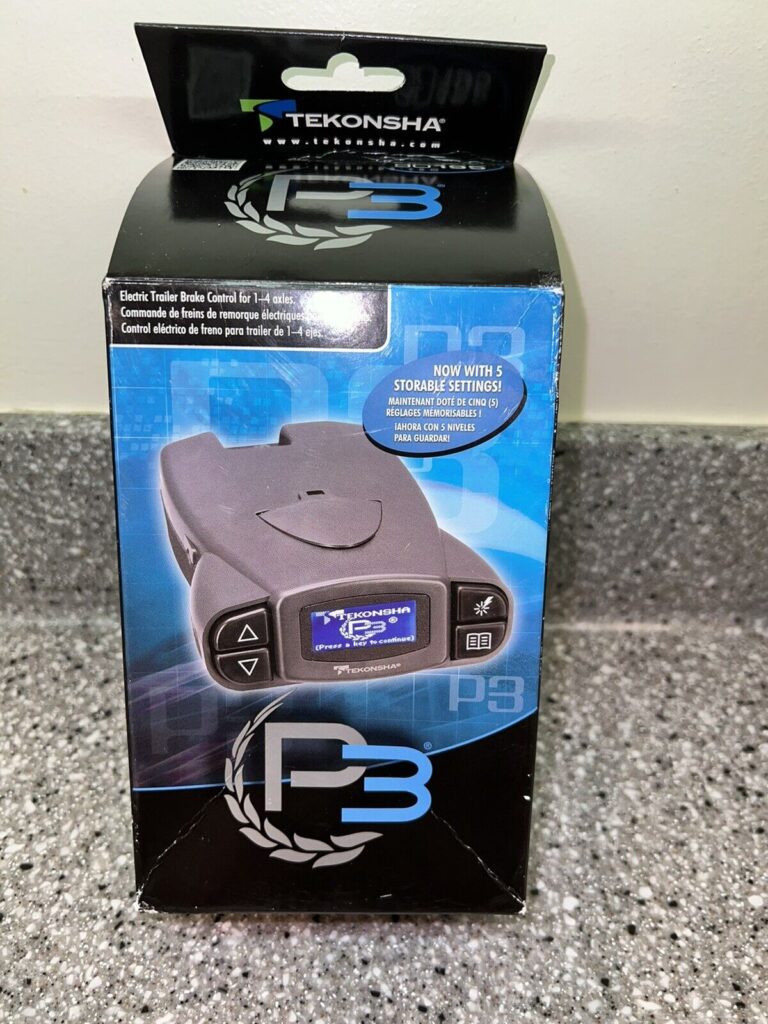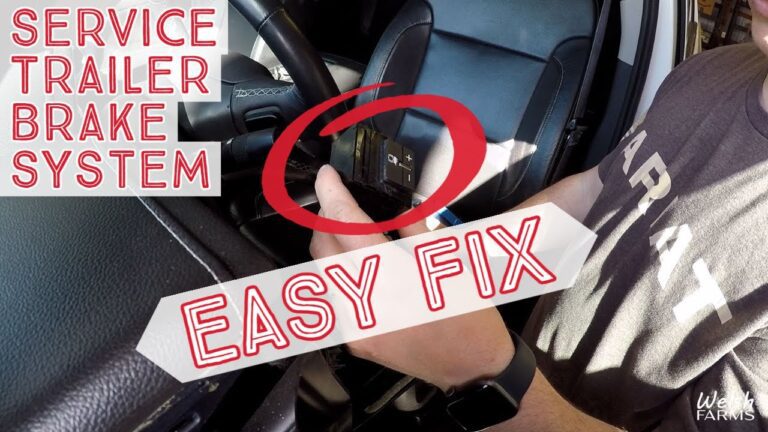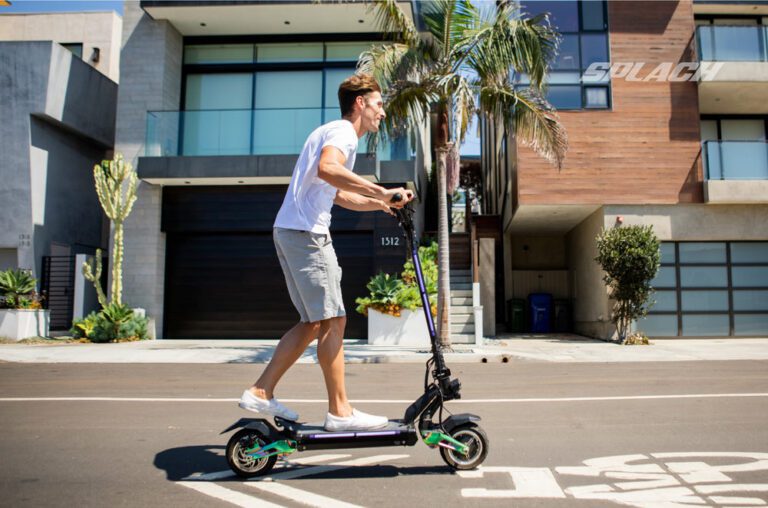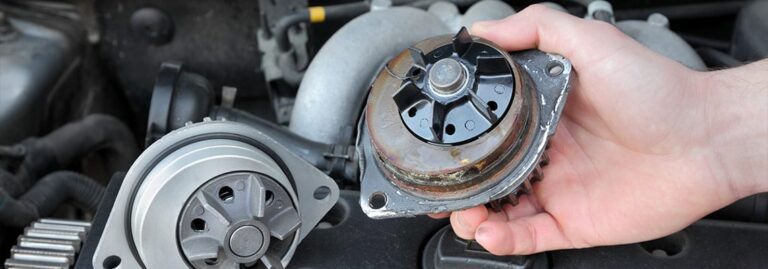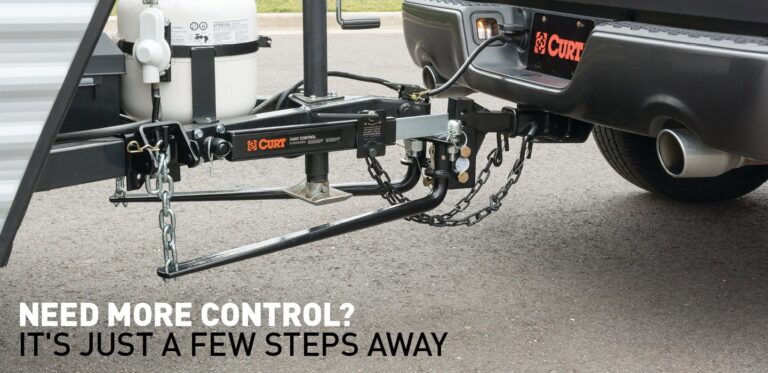Mastering Trailer Control: Setting Your Brake Gain Perfectly
Set your trailer brake gain to a level that provides enough stopping power without causing the trailer brakes to lock up. When adjusting the brake gain, start with a low gain setting and gradually increase until the brakes provide appropriate stopping power.
It is important to regularly check and adjust the gain as needed based on changing road and trailer conditions. Trailer brake gain is a critical factor when towing a trailer, as it determines how effective the brakes are in slowing down or stopping the trailer.
Choosing the proper brake gain level requires a bit of trial and error, as it depends on the weight of the trailer, the condition of the road, and the speed of the towing vehicle. In this article, we’ll discuss how to adjust your trailer brake gain to ensure a safe and smooth towing experience, as well as common mistakes to avoid and other important factors to consider.

Credit: www.tampa-xway.com
Definition Of Brake Gain
Explanation Of What Brake Gain Is
If you’re new to towing a trailer, you might wonder what brake gain is and how it impacts your vehicle’s performance. In essence, brake gain is a setting that controls how much braking power is sent to your trailer’s wheels.
The higher the gain, the more braking power is delivered to the trailer. Here are some key points to understand about brake gain:
- Brake gain is measured as a percentage of the maximum braking power that your trailer’s brakes can deliver.
- Most trailer brake systems allow you to adjust the gain manually, although some systems may have automatic settings based on the weight of your load.
- Ideally, you want to set your brake gain so that your trailer’s brakes are doing about 70-80% of the work when you apply the brakes. This helps prevent the trailer from pushing your vehicle forward and reduces wear on your tow vehicle’s brakes.
The Role Of Brake Gain In Controlling A Trailer
The brake gain setting can have a significant impact on how your trailer handles on the road. Here are some ways that brake gain affects your trailer’s performance:
- Braking efficiency: If your trailer’s brakes aren’t delivering enough stopping power, you may experience longer braking distances, which can be dangerous. Conversely, if the brakes are too aggressive, your trailer may skid or fishtail, which can also be hazardous.
- Straight line stability: When you brake hard, the weight of your trailer will transfer forward. If your trailer’s brakes are set too low, the trailer may push your tow vehicle forward, making it difficult to maintain a straight line. Conversely, if the brakes are set too high, the trailer may slow down too quickly, causing it to jackknife.
- Turning control: When you turn with a trailer, the weight of the load shifts to one side. If your braking system isn’t working correctly, your trailer may push your tow vehicle off course, making it difficult to maintain your intended path.
When you adjust your brake gain, you’re essentially fine-tuning the performance of your trailer to match the conditions you’re driving in. By setting the gain correctly, you can help ensure that your trailer is safe and easy to control.
How To Set The Brake Gain Perfectly
Overview Of The Steps To Follow To Achieve Perfect Brake Gain
Setting your trailer’s brake gain is crucial to ensuring a safe and smooth towing experience. It’s important to get it right so that your trailer’s brakes are not too weak or too strong. Here’s an overview of how you can set the brake gain perfectly:
- Step 1: Find a flat and quiet road where you can safely test your trailer’s brakes.
- Step 2: Set your brake controller to the midpoint of its range.
- Step 3: Start driving at a slow speed and manually apply the trailer brakes by using the controller’s manual override.
- Step 4: Observe how the trailer brakes respond and adjust the brake gain accordingly.
- Step 5: Keep testing and adjusting the brake gain until you find the perfect setting for your trailer.
The Importance Of Getting It Right
Getting the brake gain right is crucial for several reasons. First, it ensures the safety of everyone on the road by preventing accidents caused by weak or strong trailer brakes. Second, it helps you avoid premature wear and tear on your trailer’s brakes, tires, and axles.
Third, it improves your overall towing experience by providing a smoother and more stable ride.
To set the brake gain perfectly, it’s important to follow the steps outlined above and take your time to test and adjust your settings. Keep in mind that the right brake gain setting may vary depending on the weight of your trailer and the conditions you’re driving in.
So, make sure to re-adjust your settings as needed.
Remember, setting the brake gain is not a one-time task. You should adjust it before each trip, especially if you’re carrying a different weight or traveling in different conditions. With the right brake gain setting, you can enjoy a safe and hassle-free towing experience.
Tips For Mastering Trailer Control
Overview Of Trailer Control
When towing a trailer, having good control is essential to keep everyone safe on the road. Proper trailer control is all about managing the movement of the trailer in response to the vehicle you are driving. Here are some key things to keep in mind for trailer control:
- Trailer sway: This is when the trailer starts moving side-to-side, which can be dangerous. The sway can be caused by various factors such as high winds, passing vehicles, rough road conditions, or improper weight distribution.
- Brake gain: The brake gain refers to the amount of braking force the trailer’s brakes will apply when the vehicle’s brakes are applied. This gain is adjustable and depends on the weight and size of the trailer.
- Speed control: High speed can cause instability in a trailer, leading to a loss of control. It’s important to maintain a safe and appropriate speed when towing a trailer.
How To Maintain Control Of A Trailer
Maintaining control of a trailer requires good driving skills, knowledge about trailer brakes, and proper weight distribution. Here are some tips for better control:
- Adjust the brake gain: Always make sure to adjust the gain according to the trailer’s weight and size. You can test the brake gain by applying the vehicle’s brakes to see if the trailer brakes engage correctly.
- Use the right hitch: A good quality hitch is essential for steady control. Make sure that the hitch is compatible with your vehicle and trailer and that it has the weight capacity to handle the load.
- Proper weight distribution: The weight of the load should be evenly distributed on both sides of the trailer. Make sure to load the heavier items in the front of the trailer, keeping the weight of the trailer distributed to about 60% in the front.
What To Do In Emergency Situations
Emergencies can happen at any time during a trip, but knowing how to respond can help you stay safe. Here are some tips for handling emergencies while towing a trailer:
- Trailer sway: If you feel the trailer moving side-to-side, don’t panic. Steer in the opposite direction of the sway, apply the trailer brakes gently, and slowly reduce the speed of the vehicle.
- Tire blowout: In the event of a tire blowout, keep a firm grip on the steering wheel, stay on the gas pedal, and gradually ease off the speed until you can pull over safely.
- Brakes fail: If the trailer’s brakes fail, apply the vehicle brakes and depend on the engine to slow down the vehicle. Shift to a lower gear, or use the emergency brake.
Maintaining control while towing a trailer is essential to keep everyone safe. Keep these tips in mind, always adjust the brake gain, use the proper hitch, and practice safe driving skills. Responding calmly to a sudden emergency situation can help prevent accidents, avoid panic and keep everybody safe.
Frequently Asked Questions About Trailer Control
Overview Of Common Questions About Trailer Control
Trailer control is a crucial aspect of towing. It keeps the trailer stable while also avoiding overworking the towing vehicle. In this section, we will answer some of the most common questions about trailer control to help you gain a better understanding of setting your brake gain.
Answering Questions About Trailer Control
Here are some frequently asked questions about trailer control, along with their respective answers:
- What is trailer gain, and why is it important?
- Trailer gain refers to the amount of force that the trailer’s brakes apply when the towing vehicle brakes. It’s essential to maintain a proper brake gain as it reduces the risk of skidding while preventing the towing vehicle from overworking.
- How do i set my trailer gain?
- First, test the trailer brake gain in a low-traffic, flat area. Begin at zero and move up gradually until the brake lock-up point. Afterward, set it at half of the lock-up point value, and you’re ready.
- Can you overdo trailer gain?
- Yes. If the braking force is too high, it can cause damage to the trailer’s brakes and diminish their efficiency. Overdoing trailer gain can also lead to the trailer’s abrupt stop, causing a possible accident.
- Do i need to set my brake gain every time i tow a trailer?
- Yes. Brake gain is based on varying factors such as trailer load, terrain, and towing vehicle. As a result, it’s crucial to reset the brake gain whenever you use a different trailer or drive on different terrain.
- How important is trailer sway control?
- It is crucial. Swaying or fishtailing can lead to uncontrollable movements on the road, significantly increasing the risk of accidents. Trailer sway control helps with the stability of the towing vehicle and reduces swaying while driving.
Providing Helpful Information For Trailer Owners
Trailer brake gain and control are essential for your towing vehicle’s reliability and safety on any road trip. These frequently asked questions help you gain a better understanding of the importance of setting the right brake gain, how often to check it and the importance of having trailer sway control.
Always seek expert advice when in doubt, and enjoy your travels knowing you are towing safely!
Frequently Asked Questions For What Should I Set My Trailer Brake Gain To
What Is Trailer Brake Gain And Why Is It Important?
Trailer brake gain is the amount of brake force applied to the trailer’s brakes when the towing vehicle brakes are activated. It’s important because it ensures that the trailer stops safely and doesn’t push the towing vehicle.
How Do I Know What Brake Gain Setting To Use?
To determine the right brake gain setting, you need to do a series of tests. Start with a low setting and gradually increase it until the trailer brakes are just as effective as the towing vehicle’s brakes. Make sure to test on a flat surface at a low speed.
What Happens If The Brake Gain Setting Is Too High?
If the brake gain setting is too high, the trailer brakes will activate before or stronger than the towing vehicle brakes, which can result in skidding or loss of control. It can also cause premature wear on the trailer brakes.
Can I Adjust The Brake Gain Setting While Driving?
No, you should never adjust the brake gain setting while driving. It should only be adjusted when the vehicle is stationary and on a flat surface. Also, make sure to follow the manufacturer’s instructions for adjusting the brake gain setting.
What Are The Consequences Of Not Using The Right Brake Gain Setting?
Not using the right brake gain setting can lead to unsafe driving conditions, such as longer stopping distances, loss of control, and increased wear and tear on both the towing vehicle and trailer brakes. It’s important to always use the correct brake gain setting for your specific towing situation.
Conclusion
Finding the right brake gain for your trailer is an essential step in ensuring your safety while driving. By considering factors such as your vehicle’s weight, the weight of your trailer, and the distance you need to brake, you can make the necessary adjustments to your gain settings.
Remember to always test your brake gain in different driving conditions and make any necessary changes as needed. It’s also crucial to follow the manufacturer’s recommendations and guidelines to ensure optimal performance. Always remember that having a properly functioning brake system is critical to your and other drivers’ safety.
So next time you hit the road with your trailer, take the time to set your brake gain to the right level and enjoy a safe and smooth ride.

